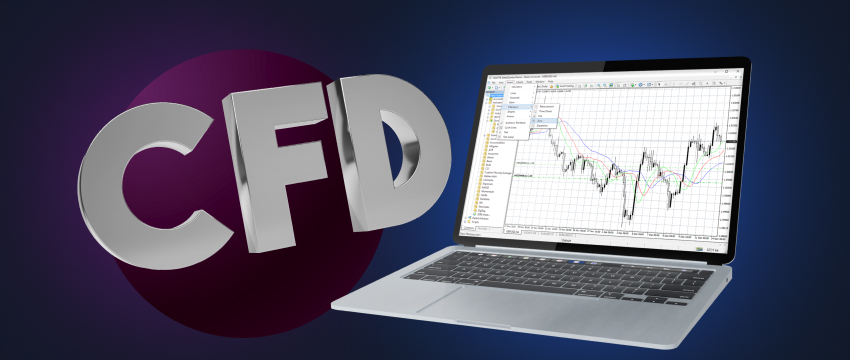Forex is the world’s largest and most liquid electronic financial market for trading international currencies and currency derivatives. It sees a daily trading volume of approximately $6.6 trillion.
The forex market has no physical location and trading is typically facilitated through brokers, banks and other financial institutions. It is open 24 hours a day, 5 days a week, with three trading sessions. This includes the European, Asian and US trading sessions. New York, London, Hong Kong, Tokyo and Singapore, dominate forex trading. The daily value (that is, the exchange rate) of global currencies is determined by the forex market.
How are currencies traded in the forex market?
Currencies are listed and traded in pairs, for example, GBP/EUR (i.e., GBP vs EUR), EUR/USD (EUR vs USD), and so forth. Currency pairs are quoted in pips and traded in micro, mini or standard lots.
Online forex trading entails speculating on the price movements of currency pairs. In other words, traders predict whether the price of one currency will rise or fall against another currency. If a trader speculates that a currency price will rise, they will go long (open a buy position). If however, the trader speculates that the price will fall, they will go short (open a sell position). Forex traders will either make a profit or a loss relative to how the prices move.

What are pips and lots?
- Lots are a measure of currency units that are bought or sold. Standard lots refer to 100,000 units of currency. A mini lot is 10,000 units of currency and a micro lot is 1,000 units of currency. Trades are executed in blocks of currency, and at any volume required (dependent on the trader’s account balance). For instance, a trader can trade 5 micro lots or 20 twenty standard lots.
- Pips are used to measure the change in a currency value vs another. Currencies are quoted in pips, usually to the 4th or 5th decimal point. In the case that a currency pair includes the Japanese Yen as the quote currency, however, the pair is typically priced out to 2 or 3 decimal places.
Trading Contracts for Difference (CFDs)
Another way to trade forex currency pairs is through CFDs. A CFD is a contract between two parties, in this context, between a CFD forex broker and a trader. The CFD broker acts as an intermediary between the trader and the forex market. Trades are placed on currency pairs by speculating on the price movement of the specific asset. The broker makes money through spreads (the difference between the buying and selling prices). CFDs are cash-settled meaning there is no delivery of actual goods or securities.
Manfaat
CFDs are leveraged products. This gives a forex trader the ability to borrow funds from the CFD broker to invest in traders larger than what the trader’s account balance alone would normally enable. The amount of leverage a forex trader acquires is typically based on the level of risk they’re willing to take. This is because while leverage has the potential to earn a forex trader big profit, if not handled correctly, it can see the trader racking up losses just as quickly.

Getting started with online forex trading
Achieving any kind of success with trading forex requires knowledge, skills, resilience, and a trading style that suits the level of risk you’re prepared to take on.
Learn everything you can before trading
Education is key so consume as much content as you can to learn everything there is to learn about forex trading. Read e-books and guides. Watch webinars or YouTube videos. Enrol in trading courses. Visit reputable forex websites and read through their FAQs. Monitor the financial markets and look for trends.
Stay on top of world economic news and geopolitical events for insights into their impact on forex price fluctuations. Understand everything there is to understand about the currencies you’ll trade, and learn more about forex CFDs, how they work and the impact they’ll have on your trading success.
Develop an online forex trading strategy
Becoming a skilled trader requires establishing your key trading objectives and then developing an online forex trading strategy that will help you meet those objectives. A strategy typically caters to a trader’s level of experience, risk tolerance, knowledge, and style of trading. The strategy should include the techniques a trader will implement to open or close trades. It should define the markets that will be traded, the tools to manage risk (e.g., stop-loss or take-profit orders), position size, and more.
Also, make allowances for adjustments to the strategy. There are several reasons this may occur, be this due to large losses, trading goals not being met, changes in market trends, a disparity between risk tolerance and trading style, lack of time, or even the inability to properly execute the trading strategy itself with little to no gains.
Practise forex trading on a demo account
Before you take the leap into live trading, test out the effectiveness of your trading strategy by opening a demo account with a reputable CFD forex broker.
A demo account simulates a real trading environment with real-market conditions. It allows you to test different types of trades using virtual money rather than your own funds, eliminating the risk of losing actual capital.
Factors to consider before moving to a live trading account
For one, having a proper understanding of the risks involved in trading with real money is an absolute must. This is largely dependent on the knowledge or practice you’ve acquired relating to forex trading, and the effectiveness of your trading strategy to meet your trading objectives. Further, ensure you’re adopting a trading style that suits your demeanour and is conducive to the level of risk you’re prepared to handle. In addition, start off small to get a proper feel for what trading forex entails. Monitor your trades and keep a record of your transactions to track performance and relevant trends.
What makes the forex market different to markets worldwide
The forex market is decentralised. It isn’t regulated by one central body. Rather, each trading region sets its own legislation and regulations. Open 24 hours a day (5 days a week) means trades can be opened or closed at virtually any hour, with the exception of weekends or very specific holidays. Forex trading typically comes at a low cost with little to no brokerage or commission fees required, but this can depend on the type of trades the broker executes and how long they’re open for.

Choosing a CFD forex broker
Selecting what is considered to be the best forex broker requires picking a broker that is reputable, renowned for their transparency and quality client support, offers a cutting-edge trading platform like the MT4 trading platform, tools to make you a better trader, and low-cost and consistent spreads.
Disklaimer: This material is for general informational & educational purposes only and should not be considered as investment advice or an investment recommendation. T4Trade is not responsible for any data provided by third parties referenced or hyperlinked, in this communication.




